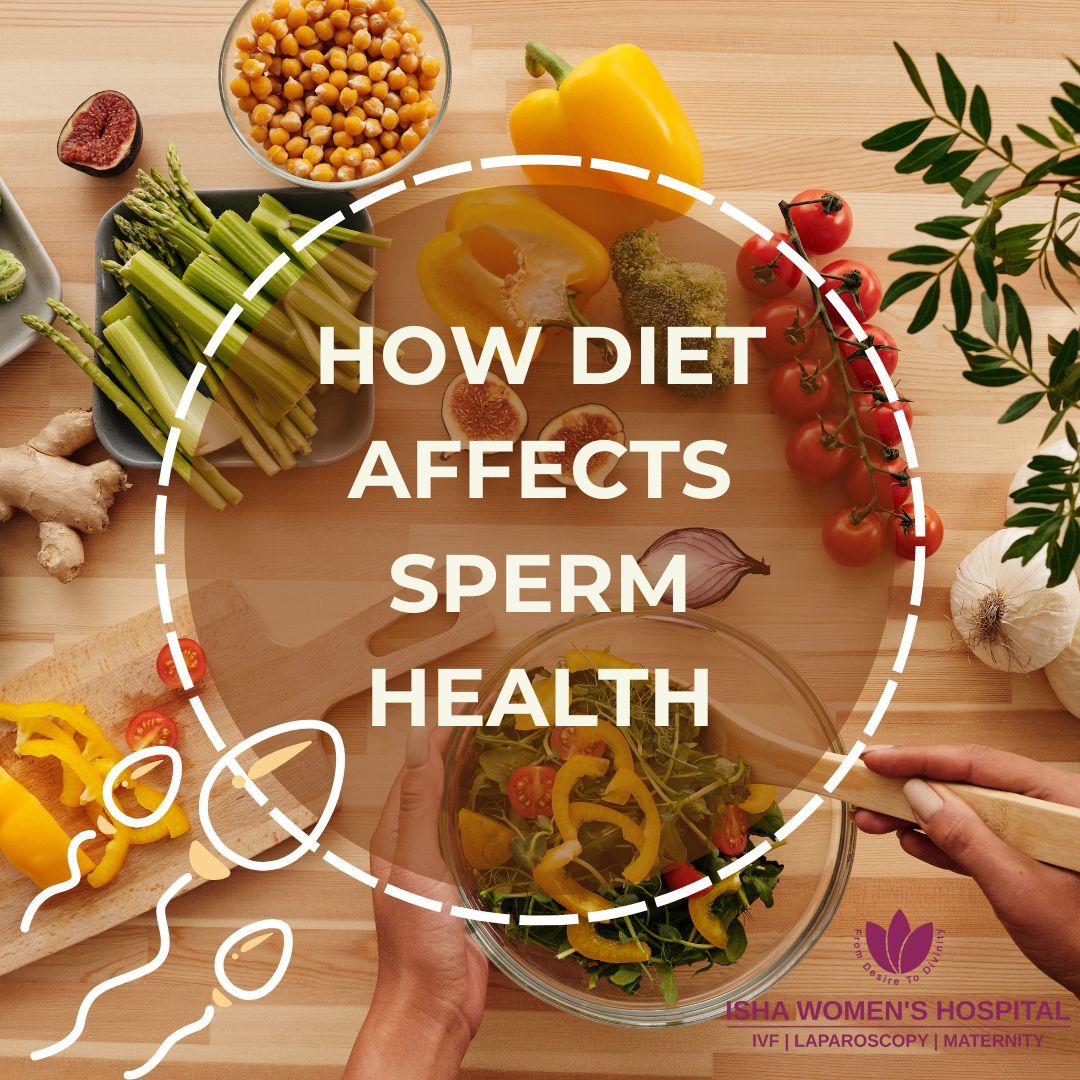How Diet Affects Sperm Health

The Link Between Diet and Sperm Health
Sperm health is evaluated based on four key factors: count, motility, shape (morphology), and DNA integrity. Research shows that dietary choices are vital in influencing these aspects, either improving or harming male fertility. Dr Chinmay Pataki, the most renowned male fertility expert, has highlighted the essential dietary components that can significantly impact sperm health.
1. Antioxidant-Rich Foods
Omega-3 Fatty Acids
Avoiding Processed Foods and Trans Fats
Limiting Alcohol and Caffeine
Isha Women’s Hospital emphasizes the role of nutrition as part of a comprehensive fertility treatment plan. Under the expertise of Dr. Chinmay Pataki, the best infertility specialist, we guide patients on dietary changes to support sperm health. Our state-of-the-art facility in Thane combines advanced fertility treatments with personalized care, ensuring the best outcomes for our patients.
Dr. Chinmay Pataki’s Dietary Tips to Improve Sperm Health
- Include a variety of colourful fruits and vegetables in daily meals.
- Opt for whole grains and lean proteins over processed alternatives.
- Add nuts and seeds to your snacks for a healthy dose of zinc and selenium.
- Stay hydrated to maintain overall reproductive health.
- Limit consumption of alcohol and high-caffeine beverages.
Take the first step toward parenthood with us. Visit Isha Women’s Hospital today and discover why we’re the trusted choice for fertility care in Thane.
Frequently Asked Questions (FAQs)
Ans - Yes—a balanced diet supports better sperm count, motility, and shape.
2. Which foods improve sperm quality?
Ans - Fruits, veggies, nuts, seeds, whole grains, and foods rich in zinc, selenium, and antioxidants.
3. What foods harm sperm health?
Ans - Processed foods, trans fats, sugar, excess alcohol, and red meat may reduce sperm quality.
4. Can vitamins and supplements help?
Ans - Yes—Vitamin C, E, zinc, CoQ10, and omega-3s can protect sperm from damage.
5. How long does a diet take to affect sperm?
Ans - It takes about 2–3 months to see improvement, as sperm regenerates every 74 days.
